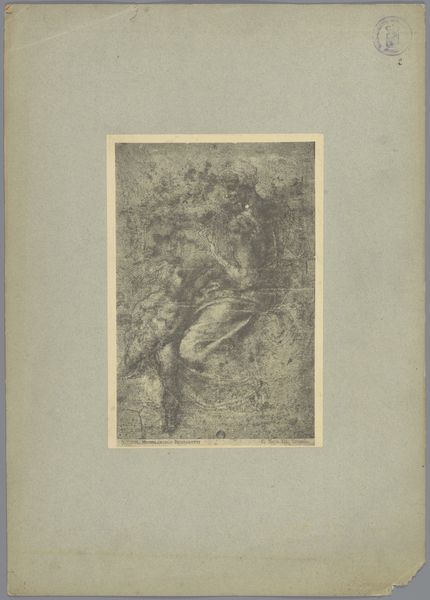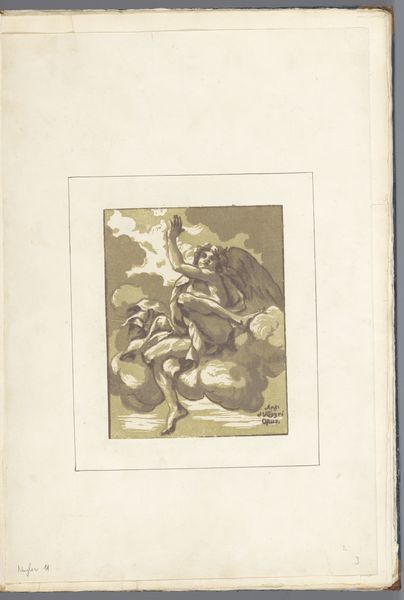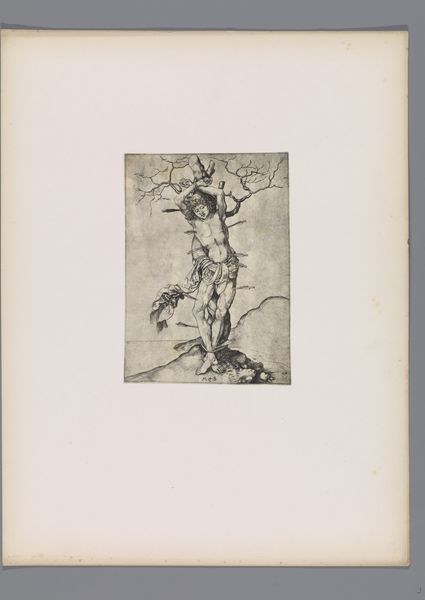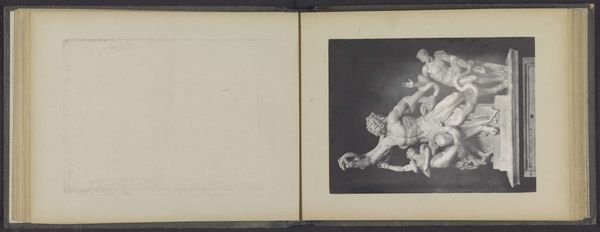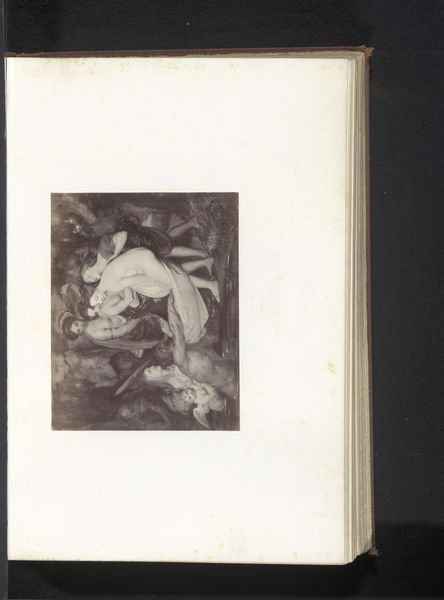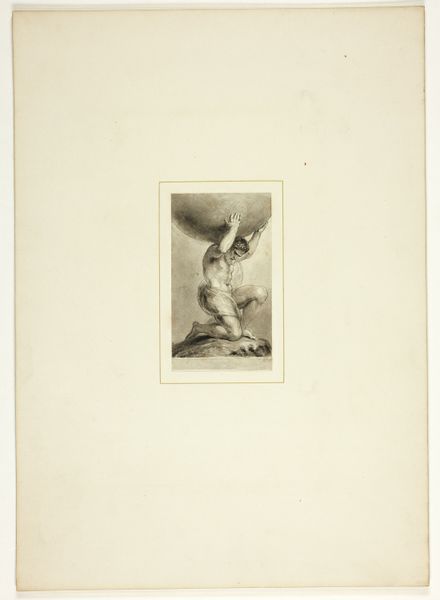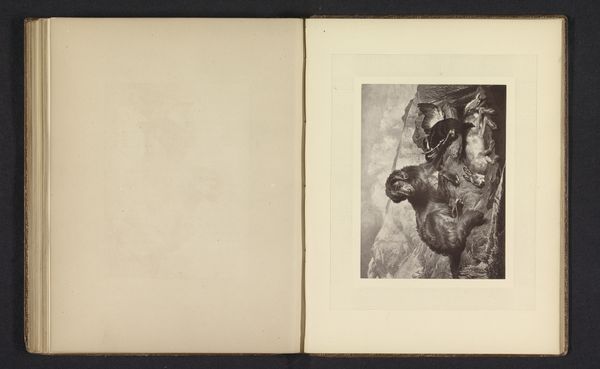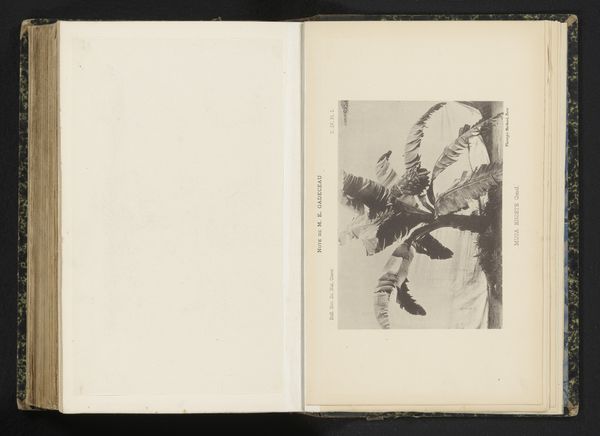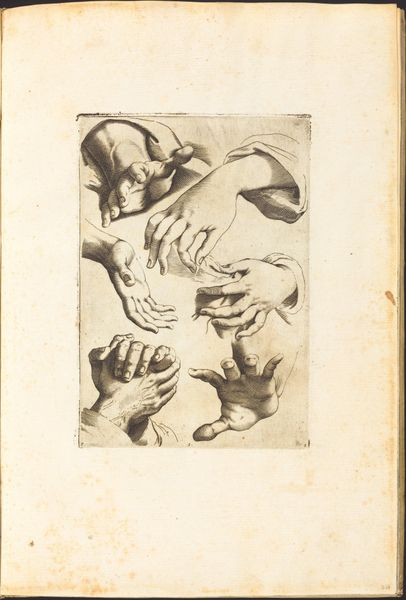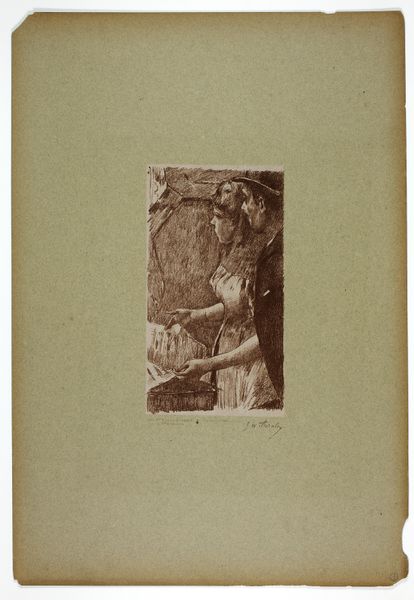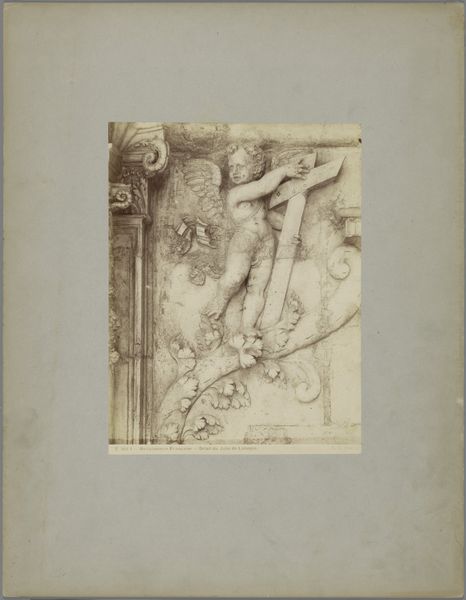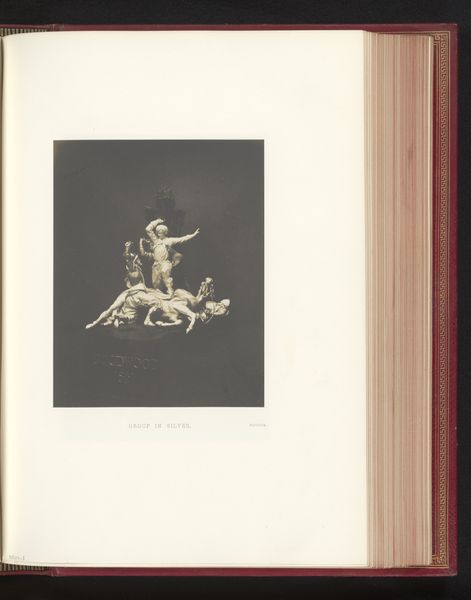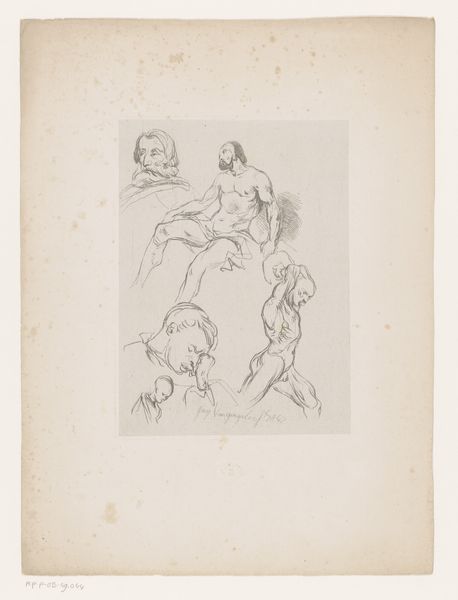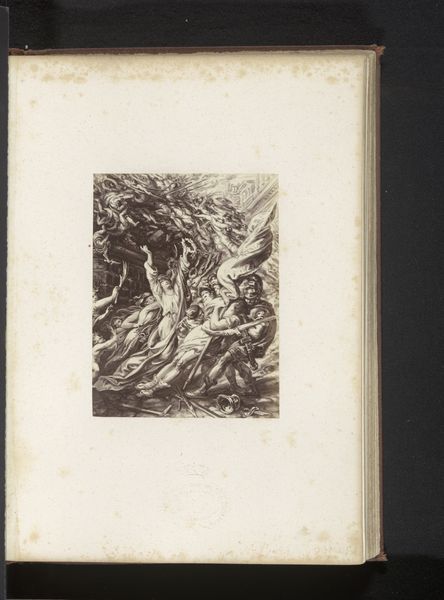
Fotoreproductie van een schets door Rafaël, voorstellende een Triton en een Nereïde c. 1875 - 1900
0:00
0:00
drawing, print, paper
#
drawing
#
narrative-art
# print
#
greek-and-roman-art
#
figuration
#
paper
#
ancient-mediterranean
#
line
#
history-painting
Dimensions: height 199 mm, width 140 mm
Copyright: Rijks Museum: Open Domain
Editor: So, this is a photographic reproduction of a sketch, a Triton and a Nereid attributed to Raphael, made sometime between 1875 and 1900. There's a rawness to the image, stemming from it being a reproduction of a sketch, I think. The figures seem caught in mid-motion. How do you interpret this work, considering its historical context? Curator: Considering that it's a photograph of a Raphael sketch, it operates on a few levels. The sketch itself alludes to classical antiquity, to Greek and Roman myths, reimagined through a Renaissance lens. But the photograph? It's a 19th-century attempt to capture and disseminate high art to a wider audience. Who had access to these images, and what was the intention of photographing Raphael's work at this time? Was it for study, commercial gain, or something else? Editor: That makes me wonder about the role of reproductions in democratizing art versus potentially cheapening the original work. Curator: Exactly. The very act of reproduction changes the meaning and value of the original. Photography made art more accessible, certainly, but also commodified it, turning artworks into easily consumable images. What stories were lost, or perhaps created anew, through this process of reproduction? Editor: It’s fascinating to think about how the photograph itself becomes a historical artifact, layering another layer of interpretation on top of Raphael's initial creation. Thanks for your perspective! Curator: Indeed. This little photograph prompts us to think about art's journey through history and the role technology plays in shaping our understanding of it. Thank you, it's been enlightening.
Comments
No comments
Be the first to comment and join the conversation on the ultimate creative platform.
